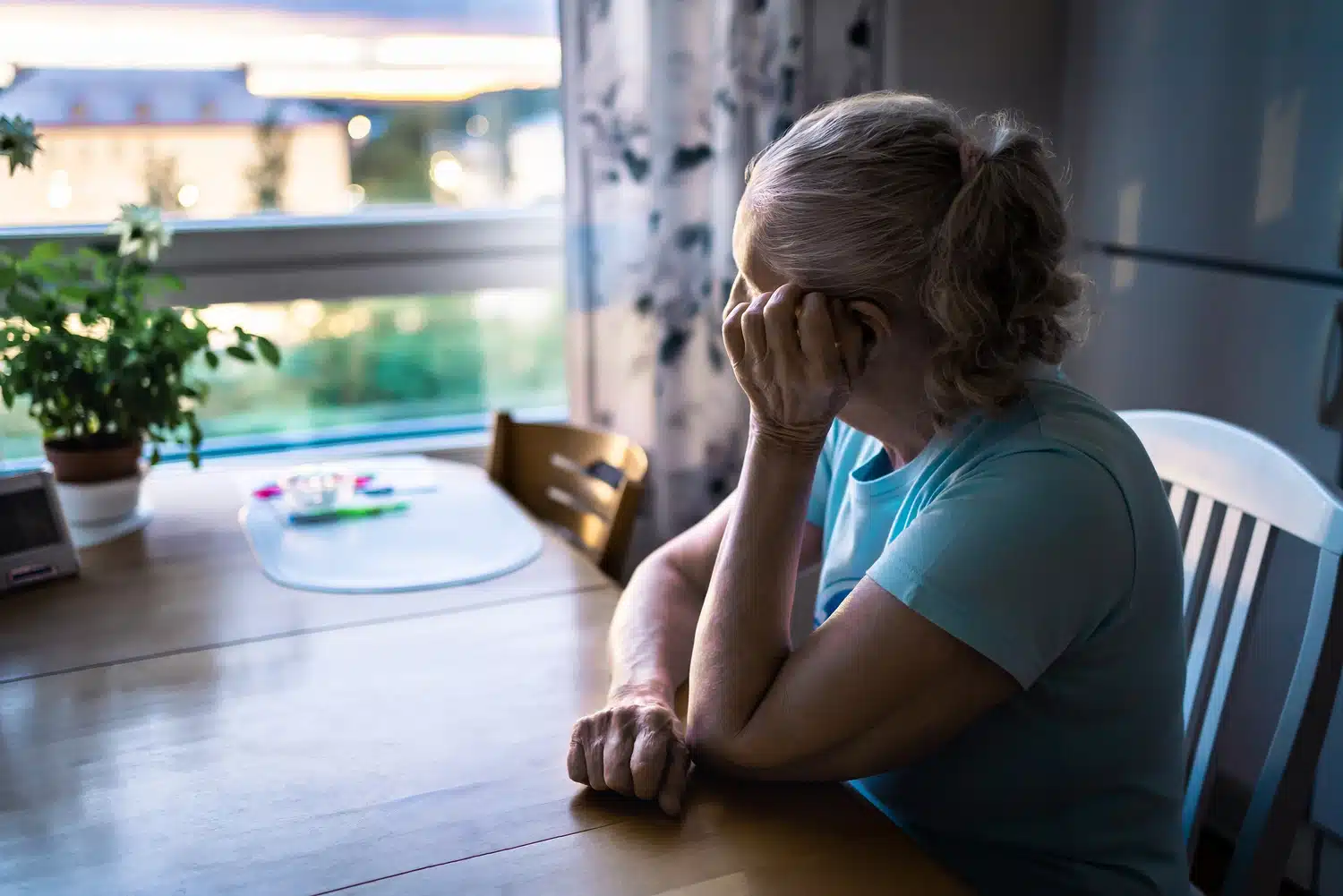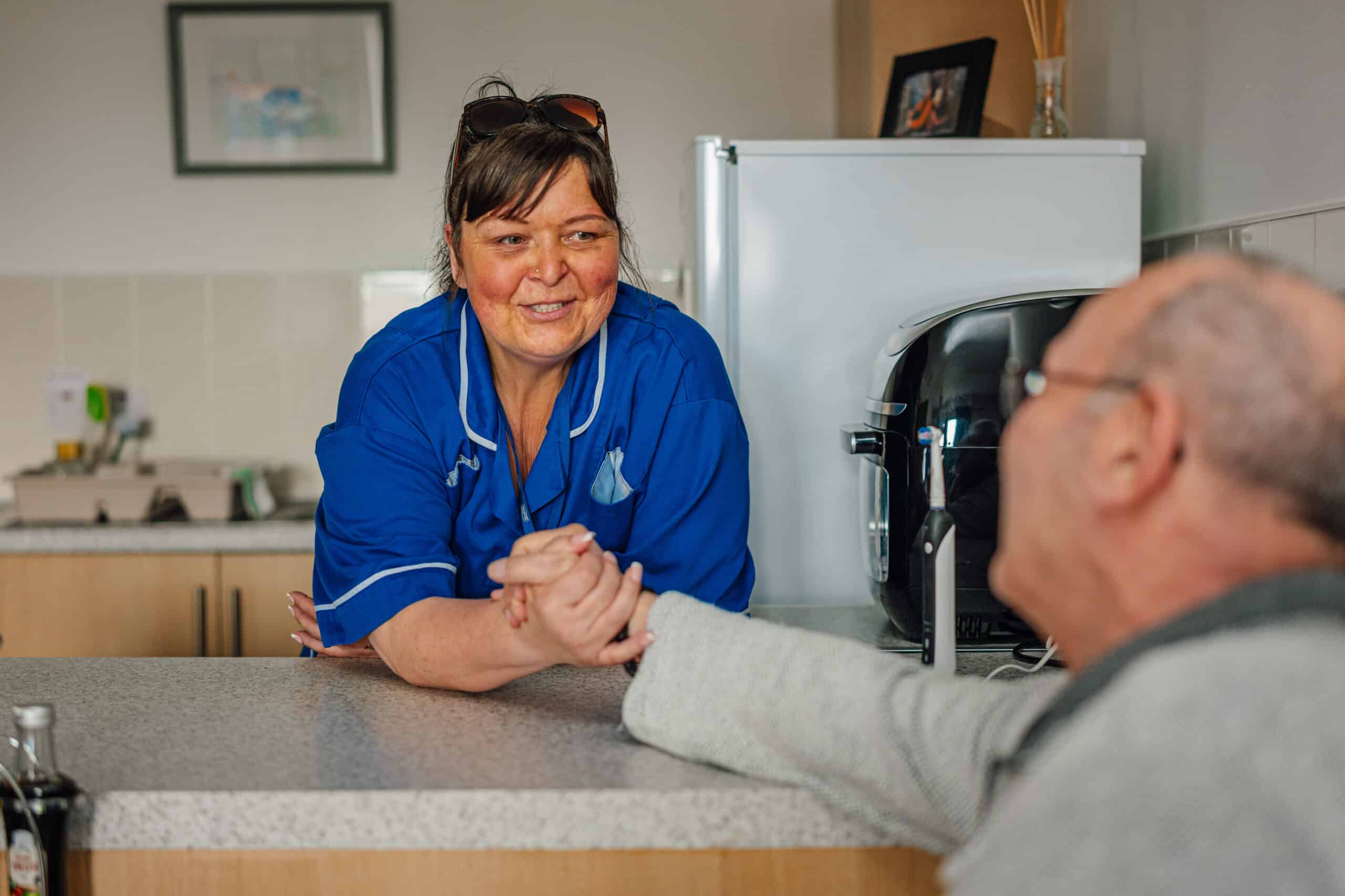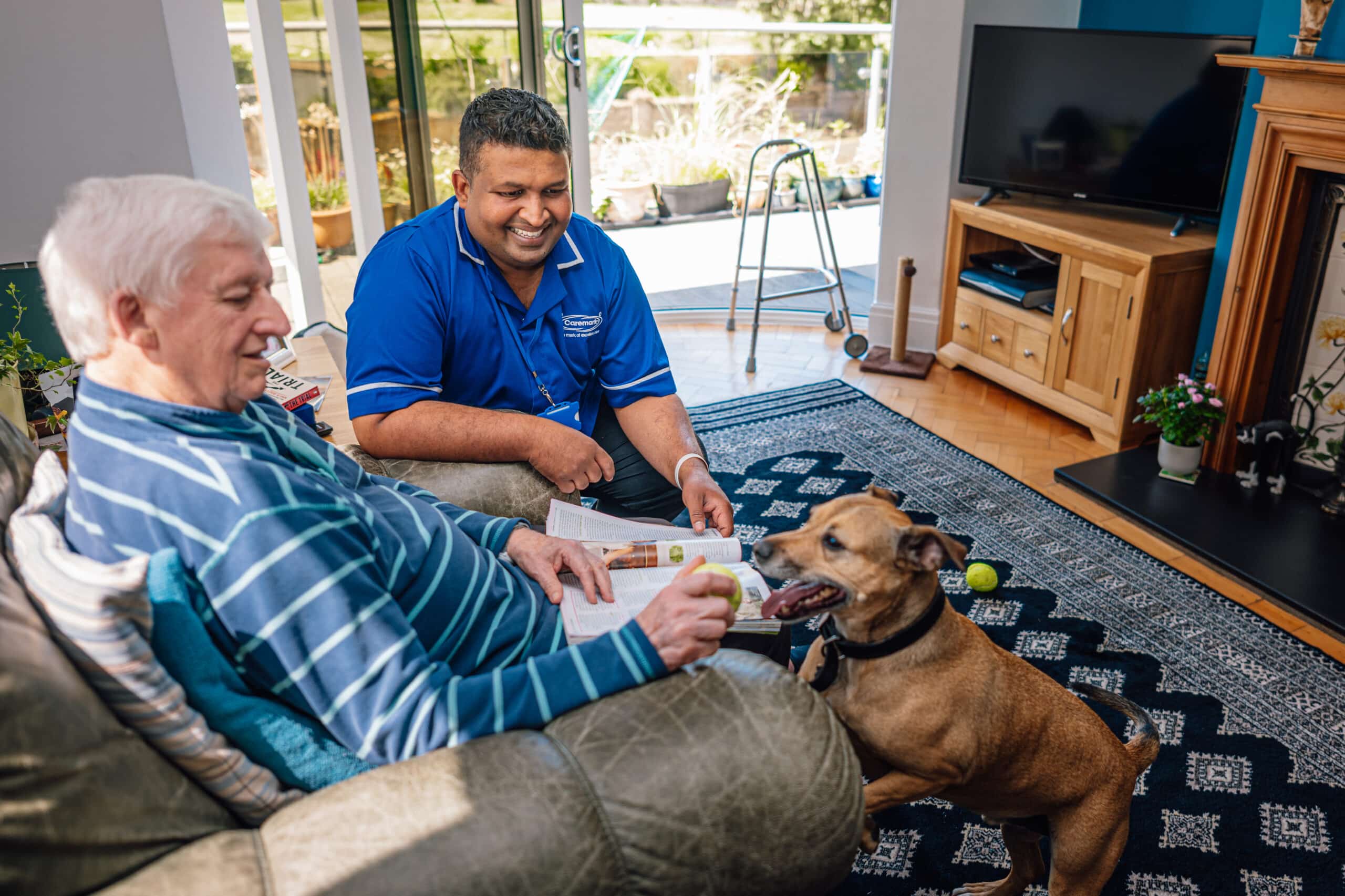Understanding and Supporting Anxiety in Older People

Anxiety is not just a condition that affects younger people. Anxiety in older adults is a growing concern. However, it often goes unnoticed or is mistaken for other age-related issues. At Caremark, we offer support to help older people live fulfilling, empowered lives.
What Is Elderly Anxiety?
Anxiety disorders in older people include a variety of conditions. They can all deeply impact well-being. Common types include Generalised Anxiety Disorder (GAD), which involves persistent and often irrational worry that can disturb daily life. Panic Disorder is another prevalent condition. It is marked by sudden episodes of intense fear that may feel like a heart attack. Social Anxiety Disorder causes fear in social situations. It makes it difficult for older adults to engage with others or take part in community activities. Also, Health Anxiety, characterised by obsessive health worries, can dominate thoughts and behaviours. It leads to frequent medical concerns and heightened stress.
While occasional worry is completely normal, chronic anxiety in older people can lead to sleep disturbances, fatigue, and a reduced quality of life. These disorders often go undiagnosed in older adults, yet they are very common.
Recognising the signs early is crucial. Timely intervention can help manage symptoms and improve overall well-being. Whether it’s therapy, lifestyle changes, or medical support, taking action can empower older individuals to regain control and live more comfortably.
Why Does Anxiety Increase in Old Age?
Anxiety often becomes more prevalent in older people due to a range of life changes and health challenges. As we age, chronic illnesses and ongoing health concerns can take a toll on our well-being. The loss of a close friend or family member can be a major contributor to anxiety in later life. Social isolation can be due to mobility issues, retirement, or fewer opportunities for community engagement. It can also increase feelings of loneliness and fear.
Noticing signs of cognitive decline or the early stages of dementia in yourself or a loved one can trigger significant anxiety. These experiences, combined with a reduced support network, can make older adults more vulnerable to developing anxiety.
It’s important to remember that while anxiety is a natural response to stress, persistent or overwhelming worry is not a normal part of ageing. If you or someone you care about is struggling with anxiety, there are effective ways to find relief. From therapy and medication to lifestyle changes and community support, help is available. It can improve mental health and restore peace of mind.

Signs and Symptoms of Anxiety in Older People
Recognising the signs of anxiety in older people is the first step to offering support. Symptoms may include:
- Restlessness or irritability
- Trouble sleeping or fatigue
- Difficulty concentrating
- Muscle tension or headaches
- Avoidance of social situations
- Increased dependence on others
- Physical symptoms like rapid heartbeat or shortness of breath
It’s important to note that these symptoms can also be linked to other conditions, so a proper mental health assessment is essential.
How to Support an Older Person with Anxiety
Supporting someone with elderly anxiety disorders requires empathy, patience, and practical strategies. Here’s how you can help:
1. Encourage Open Communication
Let older adults know it’s okay to talk about their anxiety. Talking therapies can be incredibly effective.
2. Promote Healthy Routines
Regular exercise, a balanced diet, and a consistent sleep schedule can all be beneficial
3. Reduce Isolation
Arrange social visits or community activities, such as volunteering or hobbies. Technology can also be used to stay connected with loved ones.
4. Seek Professional Help
Speak to a GP or mental health professional. It might be helpful to explore CBT (Cognitive Behavioural Therapy) or online therapy. If recommended by a doctor, medication can also be considered
5. Create a Calm Environment
It might be helpful to reduce clutter at home or to use relaxation techniques like breathing exercises and mindfulness.

The Role of Home Care in Managing Anxiety
Home care services can play a vital role in supporting older adults with anxiety. At Caremark, we offer:
- Companionship care to reduce loneliness
- Help with daily routines to promote stability
- Support with medication management
- Encouragement to attend social or medical appointments
- A familiar face and a listening ear
At Caremark, our person-centred care ensures that all our customers receive support tailored to their emotional and physical needs.
Taking the Next Step in Supporting Anxiety in Older People
Anxiety in older people is a serious yet manageable condition. With the right support systems in place, older adults can regain a sense of confidence. A consistent daily routine, a calm and stable environment, and someone willing to listen all help to balance emotions. This could be through professional mental health care, community programs, or simply offering a compassionate ear. We all have a role to play in supporting older people with anxiety. Early intervention and ongoing help can support older individuals to feel safe and connected
If you or a loved one is struggling with anxiety, don’t wait; discover how Caremark can help.

What Caremark Can Do For Older People and Anxiety
At Caremark, we provide high-quality, professional care that helps individuals live empowered lives. Our kind, trustworthy care assistants are key to our tailored care. Our customers are at the heart of everything we do, so we want to support every one of their needs to manage their condition.
Want to learn more about the care services we provide? Get in touch and discover how we can support you or someone you love. From complex care to dementia care, we are here to help.